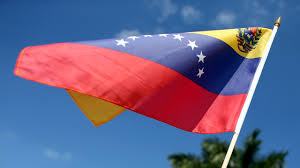Violent clashes in Venezuela as thousands protest socialist government
Thousands of protesters clashed Saturday for a fifth consecutive day with security forces in Caracas, the Venezuelan capital.
Officers in riot gear blocked a highway as marchers tried to advance, chanting "Liberty, Liberty!" Protesters tossed rocks and returned tear gas canisters used against them.
The Venezuelan National Guard also used water tanks against the demonstrators as thousands of them marched from eastern Caracas, an opposition bastion, toward downtown, where most national government facilities are located.
Protesters are demanding the dismissal of all seven justices of the Venezuelan Supreme Court. The court issued a ruling March 29 that outraged the government's political opposition. It ruled that all powers vested under the legislative body, the Venezuelan National Assembly, be transferred to the court itself, which is stacked with government loyalists.
The court reversed its decision three days later after a series of violent protests. The opposition said the original decision made Venezuela a dictatorship because all three branches of government would be in the hands of the socialists.
The government's decision Friday to ban popular opposition leader Henrique Capriles from doing political work for 15 years galvanized the opposition again.
'This is repression,' opposition leader says
Capriles, 44, is the governor of Miranda state and a two-time presidential candidate who has become the most vocal critic of the socialist government. Capriles said on Saturday the government is again acting like a dictatorship with an unnecessary show of force against the protesters.
"This is repression. This is a crime. They're committing crimes and violating human rights by stepping on the rights of people. The government has staged a self-coup and what they're now doing to me is part of it," Capriles said.
Capriles later said his offices were damaged when gas canisters were shot through the windows, slightly injuring a custodian.
Earlier this week, speaking in front of his Cabinet in an event televised on the government's TV network, President Nicolás Maduro called the protesters "terrorists and vandals."
"We have them all identified. They're all identified. They will fall one by one and they will go straight to face justice," Maduro said.
The president said 30 people had been detained, but the Venezuelan human rights group Penal Forum reported Saturday there had been 115 detentions since Tuesday.
Opposition lawmaker José Guerra, who participated in Saturday's protests, said the march was peacefully advancing on Francisco de Miranda Avenue, one of Caracas' main thoroughfares, when "tear gas bombs started raining on us."
"People got dispersed. The repression was brutal. People ran towards shopping malls, officers went after them, and that's when the chaos broke out. The government is responsible for all the violence. The marches were all peaceful until the national police and guard showed up and the repression started," Guerra said.
Economic crisis
Venezuela is facing a deep humanitarian crisis sparked by an economic meltdown. Shortages of basic food products and medicines are commonplace. Inflation is expected to rise 1,660% this year and 2,880% in 2018, according to the International Monetary Fund.
Earlier in March, data from the country's central bank revealed Maduro's government is running out of cash. Venezuela has $10.5 billion in foreign reserves left. Given that the country owes $7.2 billion in outstanding debt payments, it means Venezuela will run out of cash at some point, depending on the fluctuation of oil prices. Almost all (96%) of Venezuela's exports are oil products.
News Courtesy: www.cnn.com











